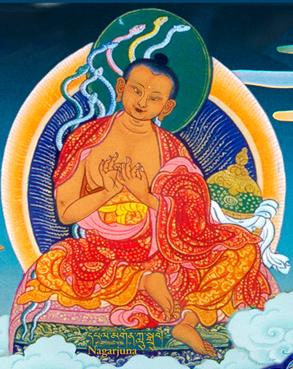
XVIII.1.
If the individual self were different from the “groups,” then it would be without the characteristics of the “groups.”
XVIII.2.
There is lack of possessiveness and no ego on account of the cessation of self and that which is “my own.”
XVIII.3.
Whoever sees “he who is without possessiveness” or “he who has no ego” really does not see.
XVIII.4.
The “acquiring” of karma (upadana) is stopped; on account of that destruction, there is destruction of verse existence.
XVIII.5-6.
These pains result from phenomenal extension (prapanca); but this phenomenal extension comes to a stop by emptiness.
XVIII.7.
Those things which are un-originated and not terminated, like nirvana, constitute the Truth (dharmata).
XVIII.8.
Or “neither-actual-nor-not-actual”:
This is the teaching of the Buddha.
XVIII.9.
“Indeterminate,” “undifferentiated”: such are the characteristics of true reality (tattva).
XVIII.10.
Nor is a thing different from that; therefore, it is neither destroyed nor eternal.
XVIII.11.
Without singleness or multiplicity; it is not destroyed nor is it eternal.
XVIII.12.
Then, independently, the knowledge of the self-produced enlightened ones (Pratyekabuddha) is produced.
Source: Orientalia




